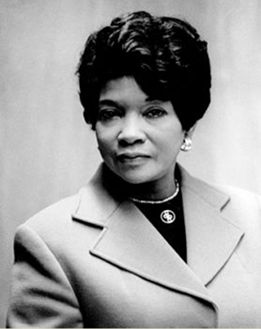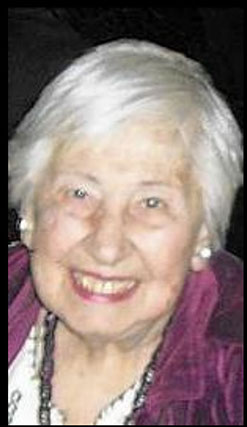
Working Womenʼs History Project
Connecting Today with Yesterday
Making Women's History Come Alive
Interviews

Rev. Addie L. Wyatt
Interview by Joan McGann Morris
Transcribed by Helen Ramirez-Odell
“Racism and sexism were economic issues.”
It is December 14, 2002. I am very honored to be in the home of Rev. Addie L. Wyatt, who is the Co-Pastor Emeritus of the Vernon Park Church of God in Chicago, Illinois, along with her husband, Rev. Dr. Claude S. Wyatt, Jr. who has worked closely with Dr. Martin Luther King Jr. from 1958 to 1968 and has participated in major marches in Selma, Alabama, Washington, D.C., and Chicago. She spent thirty years as a leader and officer of the labor movement, retiring in 1984 as Vice President of the United Food and Commercial Workers International Union. In 1975, Addie Wyatt appeared on the cover of Time magazine as one of its Women of the Year.

Yolanda "Bobby" Hall
Interview by Joan McGann Morris
“There were a lot of Rosie the Riveters.”
March, 2001
Yolanda “Bobby” Hall, the coordinator of the Working Women’s History Project, has been a long time union activist and organizer for many years in the Chicago area.
Joan Morris: Could you tell us how you got involved with the labor movement?
Bobby Hall: Back in the 1930’s my father and mother were members of unions, and my uncle was a tool and die maker from the old country, Hungary. He brought with him both union ideas and Socialist ideas. I grew up with the idea that unions were good things for working people. In the 30’s when I was in High School, the first union activity I remember was collecting food for the Chicago Taxi Driver Strike. This strike became famous because the Chicago Repertory Company Theater with Studs Terkel, put on a play by Clifford Odets, Waiting for Lefty, the story of that taxi strike.
© 2018—Working Women's History Project